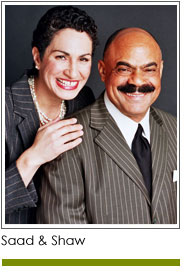 Discussions of branding can quickly turn to logos, colors, or your online presence. Are those your brand, or are they expressions of your brand? We believe they are brand expressions and that your brand isn’t as neat and tidy as a logo. In fact, defining your brand (or story) can be a messy process. It’s emotional, bringing dreams and unanswered questions to the forefront: a group process that engages diverse constituents. Your brand should be what comes to mind when people think about your organization. The simplest way to get there is to ask yourself, “what is our story?”
Discussions of branding can quickly turn to logos, colors, or your online presence. Are those your brand, or are they expressions of your brand? We believe they are brand expressions and that your brand isn’t as neat and tidy as a logo. In fact, defining your brand (or story) can be a messy process. It’s emotional, bringing dreams and unanswered questions to the forefront: a group process that engages diverse constituents. Your brand should be what comes to mind when people think about your organization. The simplest way to get there is to ask yourself, “what is our story?”
We start our clients with a series of exercises that include defining their unique niche and projected impact to what it would cost to truly implement their mission and vision. The conversations start slowly but eventually get heated. The greatest challenge: defining the niche. No one wants to “close the doors” to opportunity. But you need to know your niche in order to tell your story – and at its heart, that’s what brand is all about.
A colleague of ours, David Riemer, shared his perspective on how to think of your brand as a story. “Any good story begins with a protagonist; so an organization has to first identify who it serves. Next, you need to think about what makes them tick and what challenges they face. Any good story has a big conflict that the main character has to overcome, and likewise, organizations need to articulate the main problem they solve for their core constituents. Then you talk about how you uniquely help them overcome this challenge, again, just like a character in a story. ‘We help the character improve their lives in these ways ... and this is what makes our organization different from other organizations who do similar things.’ Once you sort out these core questions, you can craft the story about your organization. This is effectively what the brand is. Once you know the narrative in words, you can hire designers to interpret the brand via your website, logo, social media posts, case studies about constituents, videos, etc.”
Riemer, a former vice president of marketing at Yahoo! has shaped stories and brand for start ups, established corporations, and nonprofits. We enjoy checking in with him for inspiration and confirmation. Our recent conversation focused on the challenge of defining a niche. Organizations often resist focusing on an ideal client or customer – those who will benefit most from your organization. But unless you can articulate the main character, you’ll have a hard time telling a clear story!
“Once you identify your core audience, you will find people who sit on the shoulders of the core who aspire to the core audience. Those who aspire to your core audience can be visualized as outlying concentric rings.”
We love that image. Defining your unique niche allows others to “aspire” to your core audience. Now that’s different from exclusion!
Contact Riemer at davidariemer@yahoo.com or take his storytelling course at www.avanoo.com/davidriemer
Copyright 2016– Mel and Pearl Shaw
For help growing your fundraising visit www.saadandshaw.com or call (901) 522-8727.












